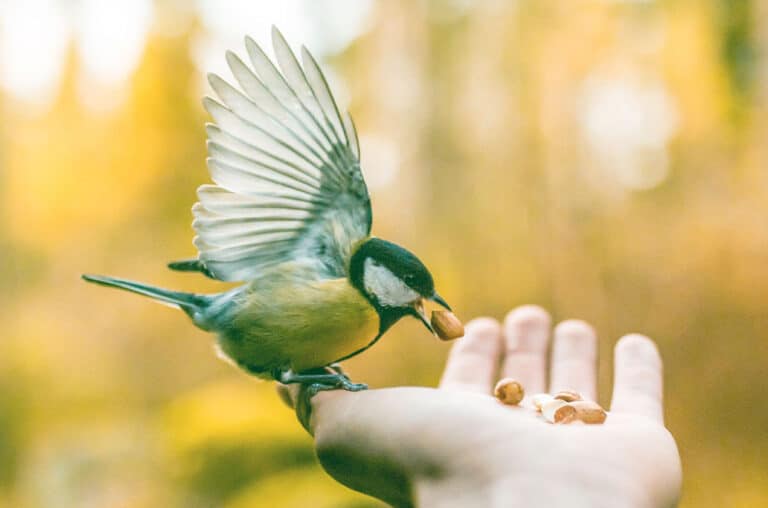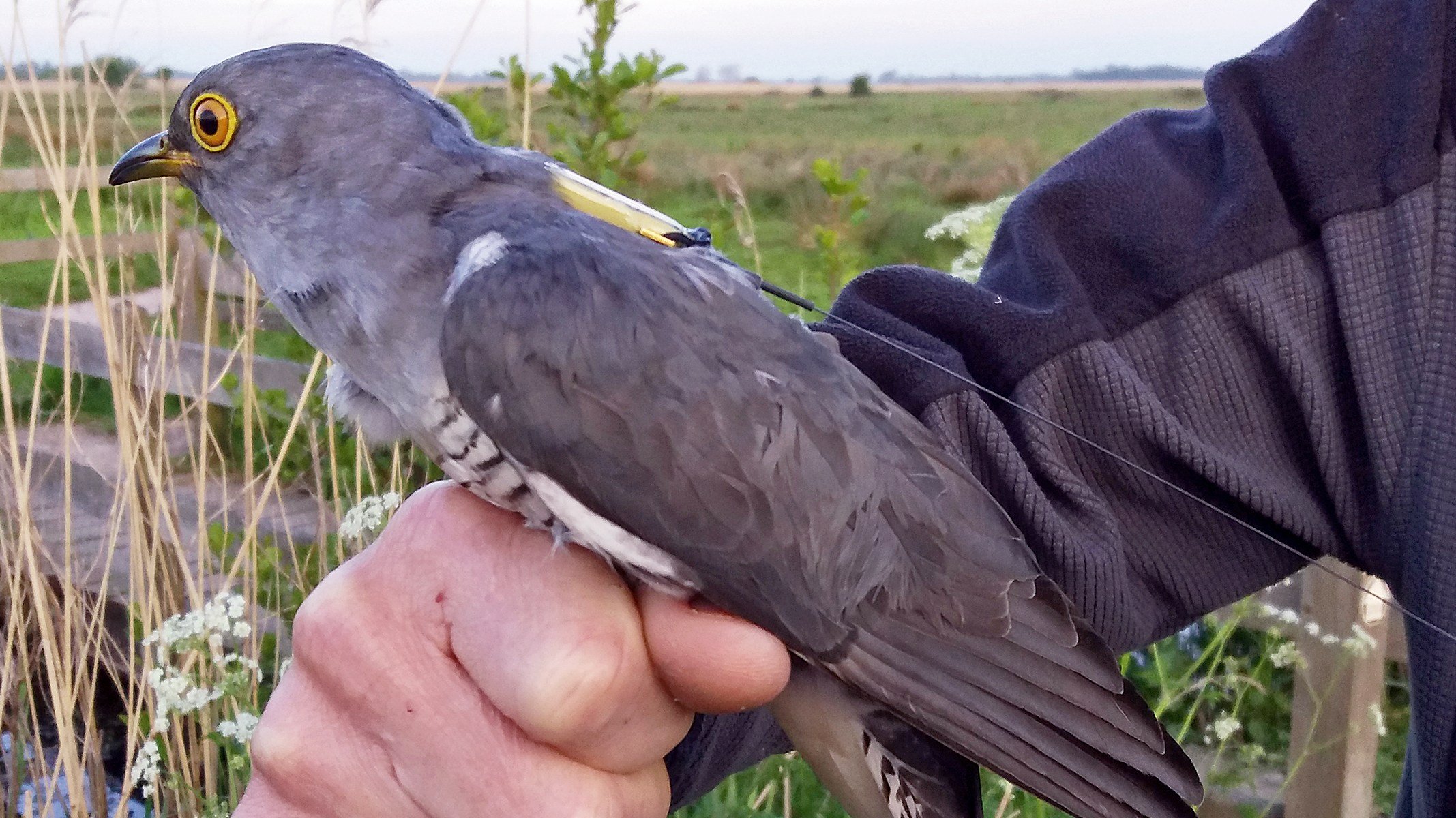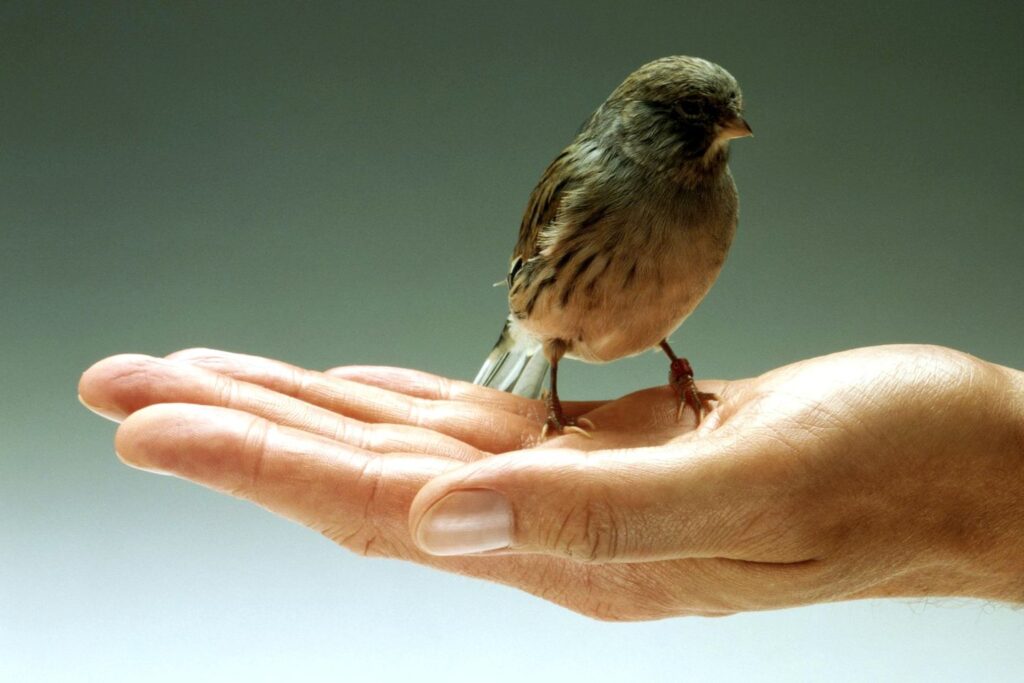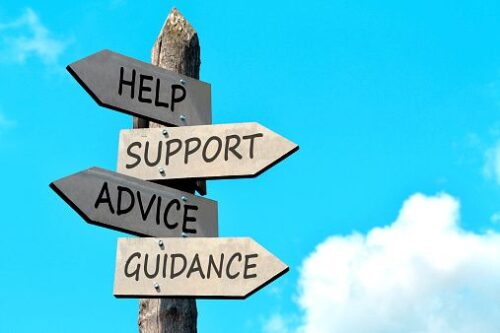Are you a bird lover and a learner or enthusiast of the English language as well? Then why not kill two birds with one stone (achieve two aims at once) and read this interesting guide to the best bird expressions and idioms in English.
To fly the nest (to learn how to fly, to become independent). To rule the roost or be the cock of the walk. To have an albatross around one’s neck. All these well-known idioms allude to our feathered friends, the symbol in many a painting of air and freedom.
A bird in the hand is worth two in the bush
A bird in the hand is worth two in the bush means that it’s better to have a lesser but certain advantage than the possibility of a greater one that may come to nothing. It refers to medieval falconry where a bird in the hand (the falcon) was a valuable asset and certainly worth more than two in the bush (the prey). As for birds and the bees (as in the natural facts of life) it most likely comes from a 16th century diary and is a euphemism for talking about sex. The connotation of using birds and bees is that sex is something natural, something in which all animals participate. Another 1605 book (of proverbs) coined the early bird gets the worm, meaning to be first improves one’s chances of success. It alludes to birds that wake up the earliest having the best chance of catching a good meal, since no other birds have awoken to pick for worms. As for not a dicky bird (as in silence, not a word, not a squeak) it’s a phrase in which ‘dicky bird’ is Cockney rhyming slang for word. A ‘dicky bird’ was actually a generic term for any little bird that was common in England in the 1700s: be it a sparrow or chickadee.

For idioms involving individual birds there’s all someone’s geese are swans meaning someone typically exaggerates the merits of people or things that are not special. The goose is contrasted in proverbs with the swan as being the less elegant and more clumsy bird. A stool pigeon is either a police informer or a person acting as a decoy. It derives from a 1825 hunting expression for the practice of tying or nailing a dead or replica pigeon on to a high stool to act as a decoy to attract other birds. As for a night owl it refers to someone who goes to bed late and wakes up late (the opposite of an ‘early bird’). An owl is known to be a nocturnal bird, awake during the night rather than the day.
As bald as a coot
As bald as a coot refers to the common coot, a water bird, which has a white bill extending to form a conspicuous white plate on its forehead. Hence the name of ‘bald coot’ which is particularly prominent against its sooty black plumage. One can also be as crazy as a coot which comes from their tendency to squabble and fly at one another for no apparent reason.
A lame duck
A lame duck is said of somebody who is ineffectual or unsuccessful; it comes from Britain’s Stock Market in the mid 18th century where the disabled bird belonged alongside the bull, stag and the bear; the lame duck, incapable of keeping up with the flock, was more vulnerable to being attacked by a predator so took on the meaning of an exposed and overstretched venture. Meanwhile an ugly duckling refers to someone not originally good looking but who became attractive over time. It comes from Hans Christian Anderson’s eponymous children’s story in which a baby bird that’s uglier than all the others is treated as an outcast but grows up to discover it’s in fact a swan and more beautiful than all the others.
Cloud cuckoo land
Cloud cuckoo land refers to an absurdly over-optimistic fantasy or an unrealistically idealistic state of perfection. It derives from the Greek writer Aristophanes in his play ‘The Birds’ in which a character persuades the world’s birds to create a new city in the sky to be named Cloud Cuckoo. As for a cuckoo in the nest it means an unwelcome intruder and alludes to the female cuckoo who typically lays her eggs in other birds’ nests. Once hatched, the cuckoo fledgling pushes the other birds’ fledglings out of the nest.
Alluding to ever more exotic birds we have albatross around one’s neck from Coleridge’s poem “The Rime of the Ancient Mariner”, in which the killing of the bird stayed with the sailor’s conscience. It was considered unlucky to kill an albatross as they were believed to embody the souls of departed mariners. Once killed one can be as dead as a dodo meaning something which is completely dead, extinct or long out of fashion. It relates to the dodo, a large flightless bird endemic to the island of Mauritius which became extinct in the 1680s. From death to resurrection with to rise like a phoenix from the ashes referring to a force that has been destroyed but remerges to triumph over its opponents. The phoenix was a legendary eastern bird which set fire to itself only then to rise again from its ashes and hence was associated by the Egyptians with immortality.

Birds of a feather flock together
Regarding all birds’ vital attributes we have in fine feather, meaning to be in good spirits, and alluding to birds in their breeding plumage when it is in peak condition. Feather your nest means to make money, typically illicitly and at someone else’s expense. It alludes to birds who use feathers (both their own and others’) to line the interior of their nests. As for birds of a feather flock together it means people will spend time with those most similar to themselves. Coined in 1545, it comes from the fact that birds of the same species gather in flocks to fly or roost while those from different species that fly together often fight.
As for cock fighting cock of the walk means one who dominates others within a group. The place in which cocks bred for fighting were kept were called ‘walks’; one cock was kept in each walk and wouldn’t tolerate other birds in its space. Well heeled, meaning well-to-do or prosperous, also comes from cock fighting, and means to provide one’s bird with good, sharp spurs that would inflict the most damage. Only later did it transfer its meaning to being armed with the more powerful weapon of money.
From other sports involving their being pursued we have beat about the bush. Meaning to approach a matter in an indirect way, it comes from the early methods of hunters approaching birds from the sides hiding in undergrowth and driving them into the path of another team to catch them in their nets. Fair game, meaning a legitimate target for attack or ridicule, comes from the shooting of birds in the open season when they have a chance of escaping and are therefore ‘fair game’. And then there’s the game is up which suggests a secret plot or scheme has been revealed. It derives from hunting where the expression shouted by the beaters employed to drive game birds out into the open suggested that the bird’s hiding place had been found and the shoot could then begin.
To talk turkey. Sick as a parrot. To sing like a canary. The list is endless as these wonderful species provide us with perfect imagery by which we humans compare ourselves!

This article was written by Break Into English’s blog contributor Adam Jacot de Boinod.
Adam is the author of several other articles on our blog dedicated to animal expressions: dogs, cats, pigs and horses – so don’t hesitate to check them out!








